 Mauricio Macri’s dismal economic record and Alberto Fernández’s reunification of the Peronist party will result in a swing to the left. But given the depth of the country’s economic crisis and the intensity of social expectations for change, victory could prove to be a poisoned chalice, writes Bruno Binetti (LSE International Relations).
Mauricio Macri’s dismal economic record and Alberto Fernández’s reunification of the Peronist party will result in a swing to the left. But given the depth of the country’s economic crisis and the intensity of social expectations for change, victory could prove to be a poisoned chalice, writes Bruno Binetti (LSE International Relations).
Argentina’s 2019 presidential elections on Sunday 27 October look set to see a return to power for the left-wing Kirchnerist movement of former presidents Nestor Kirchner (2003-07) and Cristina Fernández de Kirchner (2007-15) following the four-year hiatus of the Mauricio Macri government (2015-19).
As recently as two years ago Macri was considered a model of sorts for other pro-market leaders in Latin America and was widely expected to win reelection after his strong showing in the 2017 midterm vote. But a preliminary vote held in August 2019 strongly suggests that the incumbent Macri will lose to opposition candidate Alberto Fernández and his running mate, former president Cristina Kirchner herself.
Two key factors help to explain this reversal of fortune: Macri’s dismal economic record and the reunification of the Peronist party.
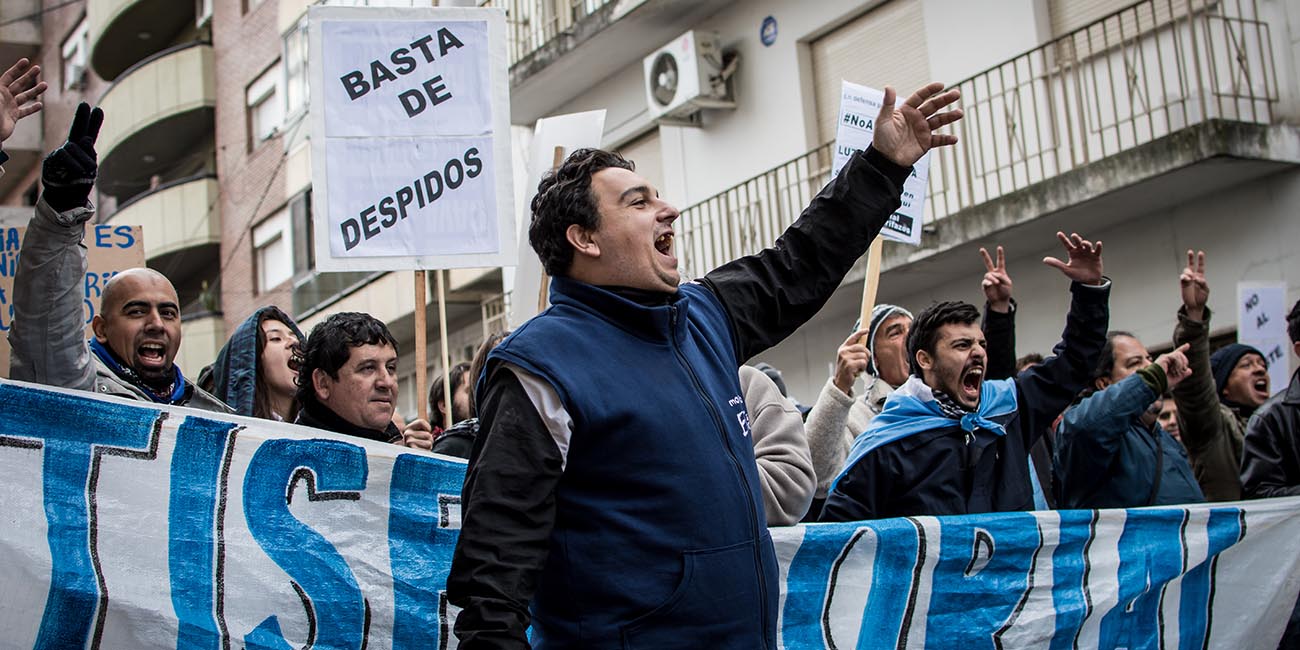
The economy under Mauricio Macri
Mauricio Macri was narrowly elected in 2015 following years of economic stagnation, high inflation, and corruption scandals under Cristina Kirchner. Once in office, Macri successfully lifted currency restrictions and ended a long dispute with holders of defaulted bonds, while committing to a gradual process of pro-market reforms. In the meantime, his government took on foreign debt to cover the large fiscal deficit.
But in April 2018, it all came crashing down: investors became wary of the slow pace of the reforms, triggering a run on the peso, a massive devaluation, and even higher inflation.
In response, the Central Bank all but eliminated credit by raising interest rates to record highs, which plunged the economy into a deep recession. As the crisis worsened, Macri turned to the International Monetary Fund (IMF), hopeful that his strong rapport with president Donald Trump would help him to secure a significant package. The subsequent $57 billion bailout was the IMF’s largest ever.
In return, the Argentine government pledged to slash the deficit, which further eroded Macri’s popularity. Today, despite the president’s repeated promises of an imminent turnaround, the economic situation remains critical: GDP will contract by at least three per cent this year and 1.3 per cent in 2020, inflation is approaching 60 per cent, and the country is on the verge of defaulting on its foreign debt once again. A financial panic following Alberto Fernández’s victory in the recent preliminary vote has only deepened the crisis.
The sudden rise of Alberto Fernández
As the economic crisis consumed the Macri government, former president Cristina Kirchner made a surprising decision. Considering herself too polarising a figure to challenge Macri directly but also recognising her popularity amongst the lower classes, she took on the role of kingmaker. In a shock move, she anointed Alberto Fernández as presidential candidate and put herself in the back seat as his running mate.
Fernández, a moderate Peronist, is hardly a newcomer. He served as Néstor Kirchner’s chief of staff and top adviser between 2003 and 2007, even staying on when Cristina Kirchner succeeded her husband. In 2008, however, Fernández quit the government over serious differences with the Kirchners. He then went nearly a decade without speaking to Cristina, not even after Néstor Kirchner’s death in 2010.
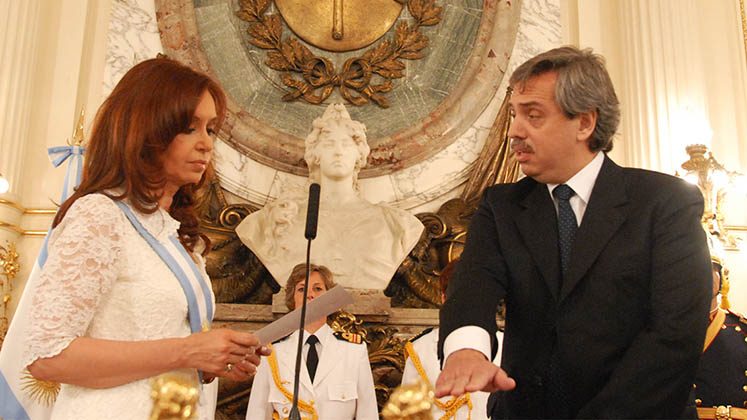
By naming Fernández to lead the ticket, Cristina Kirchner effectively facilitated a reunification between her own leftist wing of Peronism and the more moderate factions that had broken away and rejected her leadership.
A skilled political operator, Fernández gained the endorsement of nearly all of the Peronist provincial governors, labour unions, and lawmakers. He even managed to engineer a reconciliation between Cristina Kirchner and Sergio Massa, the Peronist dissident whose candidacy in 2015 had split the left-wing vote and facilitated Macri’s win.
While the Macri camp had hoped to frame the 2019 election as a choice between the future and a Kirchnerist past, Cristina’s decision to take a secondary role has allowed this election to become instead a referendum on Macri’s economic performance.
During the campaign, Fernández accused Macri of applying neoliberal policies that failed to stabilise the economy, benefited financial speculators, and caused great suffering to the Argentine people. In doing so, he has managed to reinforce the link in the public mind between Macri and the IMF, an institution that many Argentines blame for the country’s dramatic economic collapse in 2001-02.
Macri has fought back by painting ongoing economic challenges as a direct consequence of the difficult economic situation bequeathed to him by Cristina Kirchner, arguing that he needs more time to complete his reforms.
The Argentine presidency: a poisoned chalice?
Whoever wins the elections – most likely Fernández – will face a very daunting situation.
Despite the promises of the Peronist candidate, there will be little space for expansive fiscal policies to stimulate domestic consumption: the fiscal deficit is already high, and taking on more debt is out of the question with a restructuring of existing obligations already imminent. Simply printing more money, meanwhile, would fuel inflation, currently at levels second only to Venezuela in Latin America.
At the same time, however, Fernández would take office amidst high social expectations of a return to the economic bonanza of the early Kirchner years. But the Chinese demand behind the commodity boom of that era has since dissipated, and it looks unlikely to return any time soon.
If Fernández finds himself caught between a rock and a hard place and shifts towards economic orthodoxy, he could face a serious challenge from his powerful vice-president Cristina Kirchner and her many followers.
Like so many of his predecessors, the next president of Argentina will have to deal with severe economic instability that ultimately stems from structural problems such as high poverty, low productivity, commodity-dependence, and inefficient public spending, to name but a few. Nothing in the campaign or its two presidential debates indicates that either Macri or Fernández has a clear idea of how to tackle them.
Notes:
• The views expressed here are of the authors rather than the Centre or the LSE
• Please read our Comments Policy before commenting


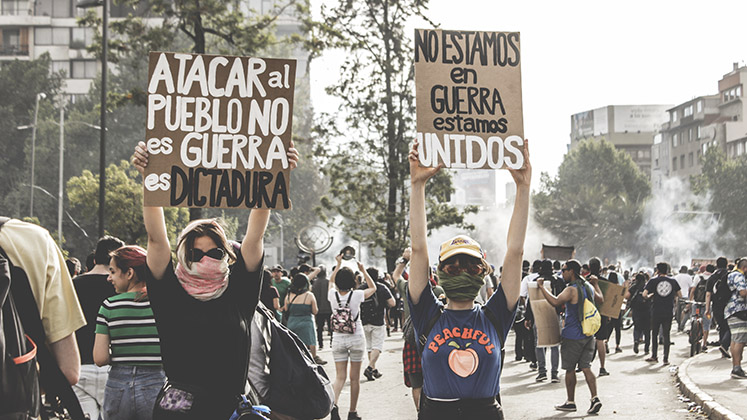
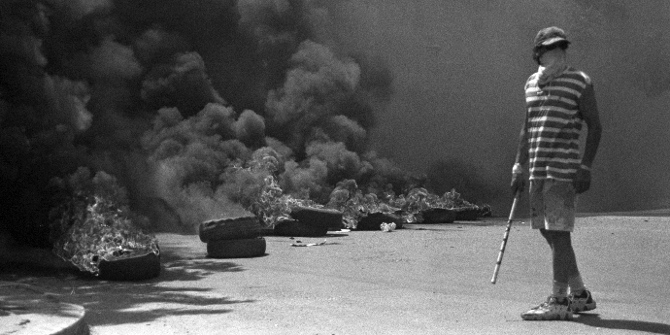
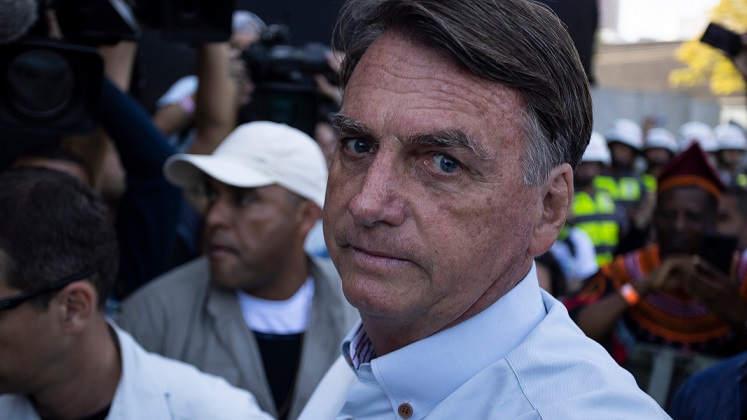
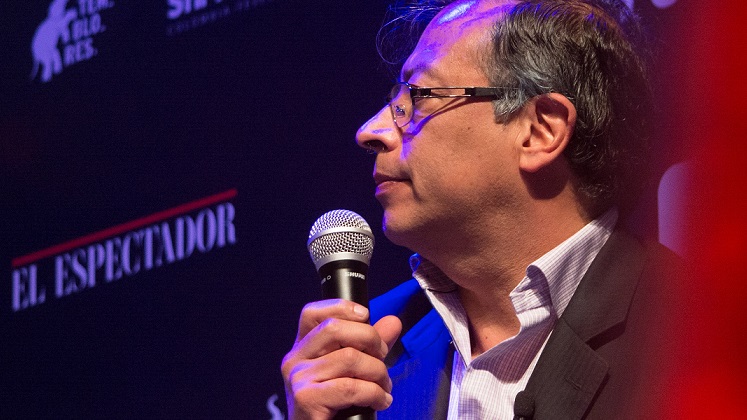
I think it is too sharp to define the new government as leftist precisely because of Sergio Massa and Alberto Fernandez. Fernandez not only participated in the Nestor Kirchner government, but also in the government of Carlos Menem – the right wing peronist block. An example is that the government already has proposed a way to promote investments in Vaca Muerta. Peronism has an interesting ideological flexibility when it comes to right and left wing, and the new government seems to be a combination of both, which could create a basis for more constructive development.